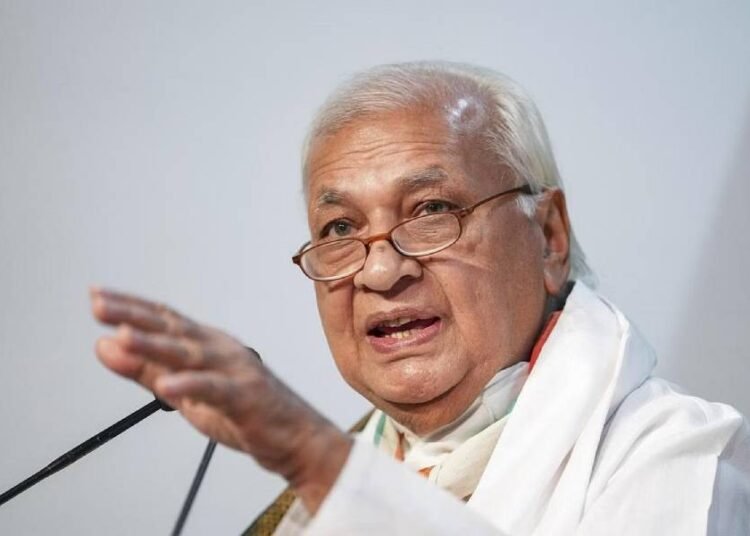In a dramatic turn of events in Kollam district, Kerala, Governor Arif Mohammed Khan found himself at the center of a contentious situation when he faced a black flag protest organized by members of the Students Federation of India (SFI), the student wing affiliated with the Communist Party of India (Marxist) or CPI(M). The protest unfolded in the midst of a broader conflict between the Raj Bhavan and the ruling Left Democratic Front (LDF) government in the state.
The episode began with the SFI staging a demonstration, expressing their dissent against the Governor. In response, Governor Arif Mohammed Khan chose to confront the protesters directly. He disembarked from his vehicle, engaged with the agitating SFI members, and even took a seat on the roadside to make his position clear. During this impromptu interaction, Governor Khan did not shy away from criticizing Chief Minister Pinarayi Vijayan, accusing him of promoting lawlessness in the state.
The incident occurred in Nilamel, a town approximately 40 kilometers from the state capital, Thiruvananthapuram. What started as a protest soon escalated into a face-off between the Governor and the protesting SFI members. Governor Khan emphasized that he was not staging a protest himself but rather waiting for the police to provide him with a copy of the First Information Report (FIR) he had demanded against the SFI activists involved in the demonstration.
The standoff persisted for over two hours, with Governor Arif Mohammed Khan remaining seated on the roadside. His actions and statements during this time reflected his frustration with what he perceived as a breakdown of law and order in the state, attributing it to the policies of Chief Minister Pinarayi Vijayan.
The situation eventually saw some resolution when the police presented Governor Khan with a copy of the FIR filed against 17 SFI activists. The FIR reportedly invoked non-bailable provisions of the law. Following the presentation of the FIR, Governor Khan chose to leave the location.
This incident is the latest development in an ongoing power struggle between the Raj Bhavan, the official residence of the Governor, and the LDF government in Kerala. Tensions have been escalating, with disagreements and conflicts becoming increasingly public. The Governor’s decision to directly confront the protesters and express his discontent with the Chief Minister’s governance style adds a new dimension to the already strained relationship between the two entities.
In the larger political context, Kerala has been witnessing a complex interplay of power dynamics, with the Governor’s role becoming pivotal. The SFI’s protest against Governor Khan reflects broader discontent among certain sections of the student community aligned with the Left, and it underscores the challenges faced by the Governor in maintaining a harmonious relationship with the state government.
The Governor’s accusation of Chief Minister Pinarayi Vijayan promoting lawlessness raises serious questions about the functioning of the administration and the rule of law in the state. The public confrontation also highlights the deep-rooted ideological and political differences that continue to define the political landscape in Kerala.
As the situation unfolds, it remains to be seen how the state government and the Raj Bhavan will navigate these contentious waters. The incident has once again brought the power struggle in Kerala to the forefront, prompting discussions about the appropriate roles and responsibilities of constitutional authorities and elected representatives in the state.














